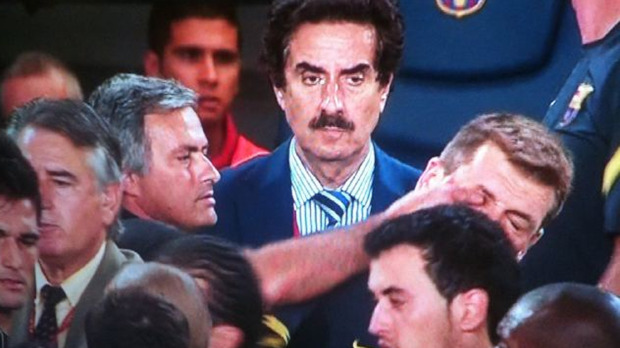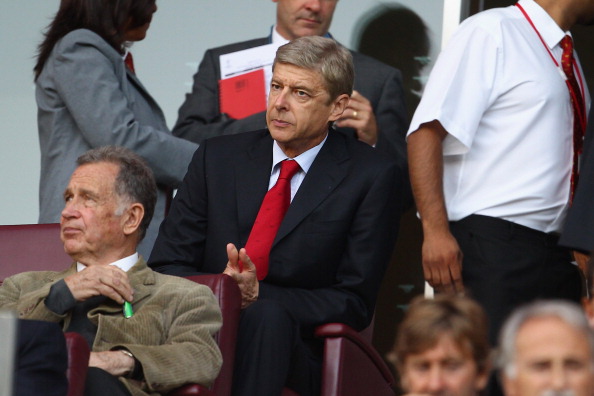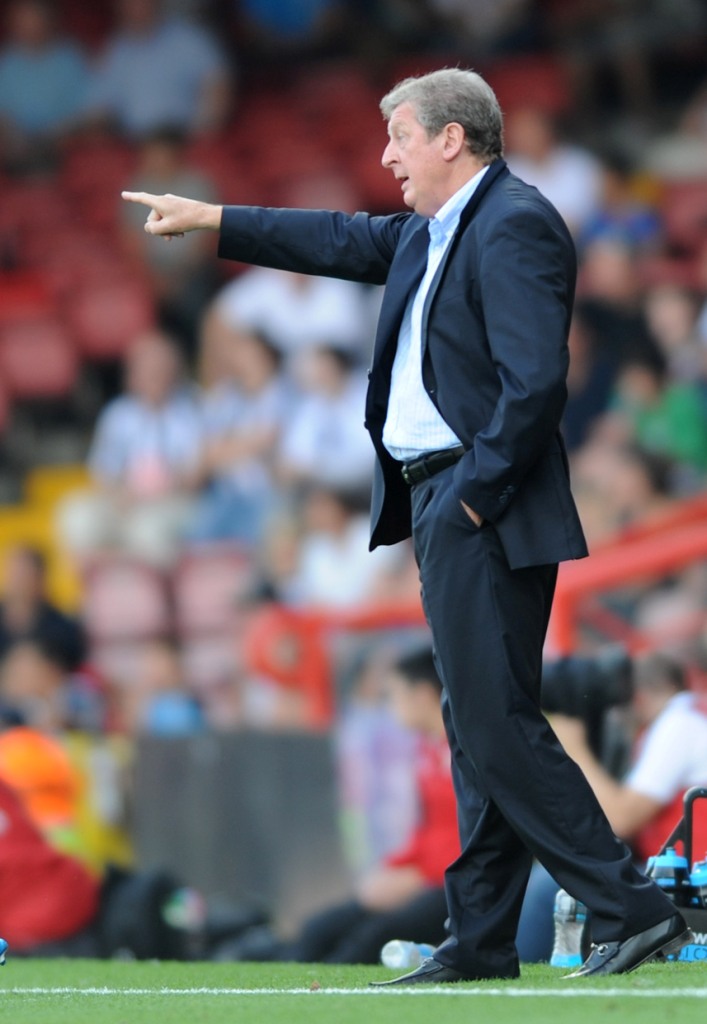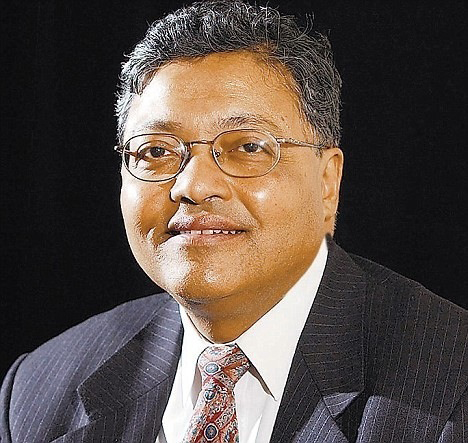The cult of the manager may have been developing since the 1960s, but football now faces a situation that not many could have imagined. This is the age of the manager as a celebrity, with his every action judged to be as important and worthy of highlight, at times even more so, than the players he manages.
This marks a fundamental change in the how the game is perceived. When Pelé described football as the beautiful game, he meant the show put on by the likes of him and his fellow players.
We now have the extraordinary spectacle of not one football event, but two simultaneous ones, where the off-field action surrounding managers, be it Jose Mourinho or Arsène Wenger, attracts as much attention, if not more, than Lionel Messi’s performance on the field.
It demonstrates that the managers have become the message. This change tells us a great deal about how we, the consumers, now react to a match. But it also poses a great danger, which the game needs to address.
True, there is a world of difference between what has brought Mourinho and Wenger’s off field activities such attention recently. Wenger’s touchline ban during Arsenal’s Champions League qualifier at home against Udinese was due to comments he made after last season’s defeat of Arsenal at the hands of Barcelona. Wenger would have been well advised to be more careful with his language, but then the professor has not always been able to control his emotions. Managers are human, they cannot be expected to be God-like in their reactions, or to be devoid of emotion, particularly when their teams have lost due to what they feel was a wrong refereeing decision. And Wenger has always been more inclined to look for mistakes by referees then faults in his own players.

What Mourinho did last week in the Spanish Super Cup match between Real Madrid and Barcelona took managerial behaviour to an entirely different, and totally unacceptable, level. Some may feel that the Barcelona vice-president, Carles Villarubi, was going a bit too far when he described Mourinho as a “stain on football”. But when a manager pokes his finger in the eye of the assistant manager of the opposing team, as Mourinho did, you can understand why he feels the Portuguese is disgracing the game. We have been here with Mourinho before.
In his Chelsea days, back in 2005, after another clash with Barcelona, he ended the career of referee Anders Frisk. He alleged that there had been contact between Frisk and Barcelona’s then coach, Frank Rijkaard, at half-time during the match. It was to lead to that famous comment by UEFA’s referee committee chair, Volker Roth, that “people like Mourinho are the enemy of football”.
More revealing are the comments of the Barcelona defender Gerard Piqué. He knows many of the Real Madrid players intimately, being part of the Spanish national team, and feels Mourinho is so influencing them that they have changed as human beings.
I have never bought the theory that Mourinho is a loveable eccentric. He has always been a very calculating man. A player of limited ability, who studied the game diligently, he also has an antenna finely tuned to knowing what will hit the headlines. He knows how to project himself, as was vividly demonstrated when he arrived at Chelsea. At his first press conference, he described himself as “the special one”. He knew the name would stick, and it did.
His fans will say that this is what makes him such a gifted manager. His achievements cannot be doubted. They are all the more remarkable because he brings success to teams that have never enjoyed it, or have long forgotten what it was like. He created Champions League winners with Porto and Inter Milan, and brought Premier League titles for Chelsea. And if Mourinho is a man of contradictions, the master of making simple things complex and seeing dark deeds while ignoring the obvious, his fans will argue that this is the price we pay for his gifts.
However, what links Mourinho with Wenger is how the modern media covers the game. The obsession with managers is not so much a commentary on them, more a commentary on our times, indeed on us. We obsess about them because we see the game differently.
Not all managers are comfortable with this change, and one man who feels very concerned about it is Roy Hodgson of West Bromwich Albion.

When Arsenal played Udinese at home, Hodgson was one of the Sky pundits. Wenger had been banned from the touchline and had to sit in the stands. For Sky, the big question was what Wenger was doing, was he communicating with his players? This has since got Wenger into more trouble with UEFA.
Throughout the match, Sky could not take its eyes off Wenger and, as Hodgson observes, “Sky was more interested in Wenger than on the field of play. I do not want to be seen as a dinosaur who says it was better before. But the fact is football has changed, it has made celebrities and stars out of the managers and coaches. You did not see Bill Nicholson very often unless you were a Tottenham supporter living in the Tottenham area. Otherwise, you would have to wait for the Charlie Buchan’s football annual to come out at the end of the year to see what he looked like. I am sure in those days, if a football manager moved out of his town he could walk down the street without being recognised. That would be impossible now. Television and the cult of the celebrity have increased our role.”
Hodgson may be a very unusual kind of English manager, more success abroad than at home, a man who reads novelists like Philip Roth and John Updike, goes to the opera and, on Monday nights at ten o’clock, switches over to Sky Indie to watch foreign films.
However, when it comes to the game, he is very much a traditionalist. “The people who pay their money to watch football don’t pay to watch coaches,” he claims. “More and more we are becoming celebrities and the camera is on us and our actions, but really and truly that is not how it should be. When you go to a football match, you should watch the performers. When I go to the opera, I do not spend a lot of time looking at the orchestra conductor. I watch the singers on the stage.”
But go to any football match, even when no television is present, and you will see the managers on the touchline performing as if they deserve as much attention as the players.
I was made very aware of this towards the end of last season during a match between Preston and Ipswich in the Championship. Much the most fascinating performer was the Preston manager, Phil Brown, once of Hull. With an earpiece in his right ear, he seemed to making what sounded like barking noises throughout the match. His players made little of this series of barks. They duly lost (they had already been relegated), but he was clearly putting on a display as if he was on show almost as much as his players.

Hodgson confesses that he finds this focus uncomfortable, “I am never happy when television cameras focus on me. When the game starts I am still naive enough, old fashioned enough, to concentrate on every ball kicked. I accept the camera as a necessary evil and that the camera will catch us. Some managers are more camera conscious, I am less camera conscious.”
He also makes the shrewd point that some managers like Wenger are not only more conscious, but also prepare for the inevitable post match press conferences. “Arsène says sound bites after the game is a very, very important moment. I am aware of it, but I am more of a chancer. I do not prepare for interviews as well as I should. I let the questions come. If I were clever, I would think more before I gave post match interviews. That sound bite gets thrown out to the public and it also gets thrown out to your players. It is an important sound bite to get your message over to the fans and also to your players.”
His Liverpool experience shows the trouble unguarded sound bites can cause. Some on the Kop will never forgive Hodgson for expressing his regard for Sir Alex Ferguson, the bête noire of Liverpool fans.
But if the rise of the manager as celebrity is here to stay, it imposes an obligation on managers. As Hodgson puts it, they must realise that they are not mere coaches of players but also leaders. “In my early years as a coach,” he confesses, “I never gave leadership a thought. I only started giving some thought to the leadership side when I went to Malmo in 1985. I started being very successful and I got invitations from companies to give talks on how to be a winning team. Businesses wanted to use sporting models. It opened my eyes. It forced me to analyse what is important, what do I believe in.”
However, many managers seem to believe in nothing. They love the limelight, but are not prepared to consider even that management also means accepting the responsibility of leadership. It is difficult to see somebody like Mourinho accepting the obligations of a leader. The tragedy of modern football is that it is Mourinho and his kind that set the standard for managers, not Roy Hodgson.
Mihir Bose is one of the world’s most astute observers on politics in sport and, particularly, football. He formerly wrote for The Sunday Times and The Daily Telegraph and was formerly the BBC’s head sports editor. Follow Mihir on twitter.

